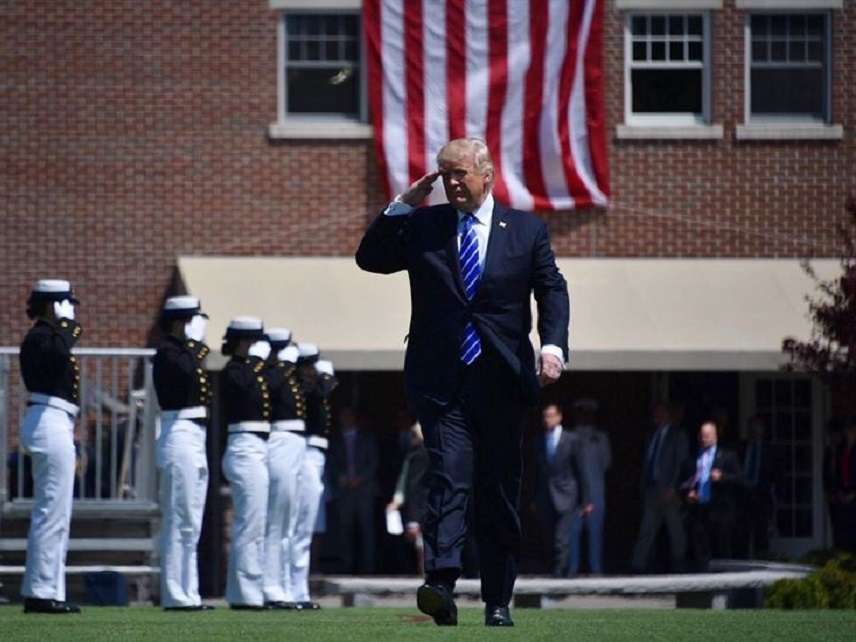Trump Needs Congressional Authorization for Pre-Emptive Strike on North Korea
But Congress has to assert its role if that's to mean anything.

President Donald Trump needs authorization from Congress to launch a pre-emptive strike against North Korea. That much is clear in the Constitution, but it's not always so clear in Washington itself.
Republican Sen. Dan Sullivan—who represents Alaska, one of the U.S. locations the North Korean regime sometimes threatens with missile strikes—has stressed this.
"If one of the military options that the administration is looking at is a preemptive war on the Korean peninsula launched by the United States, that would require the authorization of Congress," Sullivan said yesterday on Fox News. "Article I of the U.S. Constitution is very clear about that."
The Constitution is only as useful as it's applied, and there are few indications the Congress will reassert its role here. Efforts up to now to enforce the Constitution's strictures in this area have all failed.
Trump yesterday warned that further North Korean threats may be met with "fire and fury like the world has never seen." Pyongyang promptly responded by floating the idea it would strike Guam, a U.S. territory with a number of military installations.
The governor of Guam says there was currently "no threat" to his island. Secretary of State Rex Tillerson also sought to tamp down fears, telling reporters "I do not believe that there is any imminent threat" and "I have no concerns about this particular rhetoric of the last few days."
Russia's foreign minister, Sergei Lavrov, tried to put the rhetorical crossfire in perspective as well.
"Strictly speaking, this is how representatives of the Democratic People's Republic of Korea have reacted to all previous UN Security Council resolutions. We will judge by their actions," Lavrov told reporters at the end of the ASEAN summit in Manila. "We are confident that there is no alternative to the resumption of the political process, in particular the six-party talks" between North Korea, South Korea, China, Japan, Russia, and the United States.
The War Powers Act permits the president to commit military forces for 60 days before congressional authorization is necessary, and it requires him to notify Congress of a military action within 48 hours.
The Congress has not authorized a military action since the 2002 Authorization for Use of Military Force (AUMF) concerning Iraq and its alleged WMD threat. The executive branch has justified most of the military operations falling under the umbrella of the war on terror with the 2001 AUMF aimed at the perpetrators of the September 11 terror attacks and "associated forces."
Originally intended for the war in Afghanistan, the 2001 AUMF has been used to cover for military action across the Muslim world. There have been other military actions lacking explicit congressional authorization too—Barack Obama pointed to resolutions from the U.N. Security Council and the Arab League to justify the 2011 intervention in Libya. Congress declined both to authorize the intervention and to defund it.
Trump launched a strike earlier this year against an airfield in Syria allegedly used to transport chemical weapons. A handful of members of Congress—including Sen. Rand Paul (R-Ky.), Rep. Justin Amash (R-Mich.), and the lone vote against the 2001 AUMF, Rep. Barbara Lee (D-Calif.)—insisted the president needed congressional authorization, but no effort to get Congress to reassert its role got anywhere.
Trump took to Twitter this morning to claim the U.S.'s nuclear weapons arsenal was "far stronger and ever more powerful than before" because of an order he made in January for a Nuclear Posture Review.
"Hopefully we will never have to use this power, but there will never be a time that we are not the most powerful nation in the world!" the president tweeted.


Show Comments (81)